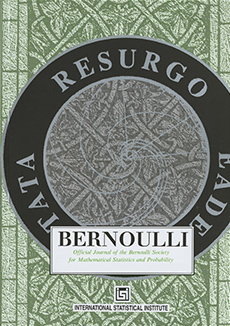Abstract
We study a Markov process with two components: the first component evolves according to one of finitely many underlying Markovian dynamics, with a choice of dynamics that changes at the jump times of the second component. The second component is discrete and its jump rates may depend on the position of the whole process. Under regularity assumptions on the jump rates and Wasserstein contraction conditions for the underlying dynamics, we provide a concrete criterion for the convergence to equilibrium in terms of Wasserstein distance. The proof is based on a coupling argument and a weak form of the Harris theorem. In particular, we obtain exponential ergodicity in situations which do not verify any hypoellipticity assumption, but are not uniformly contracting either. We also obtain a bound in total variation distance under a suitable regularising assumption. Some examples are given to illustrate our result, including a class of piecewise deterministic Markov processes.
Citation
Bertrand Cloez. Martin Hairer. "Exponential ergodicity for Markov processes with random switching." Bernoulli 21 (1) 505 - 536, February 2015. https://doi.org/10.3150/13-BEJ577
Information





